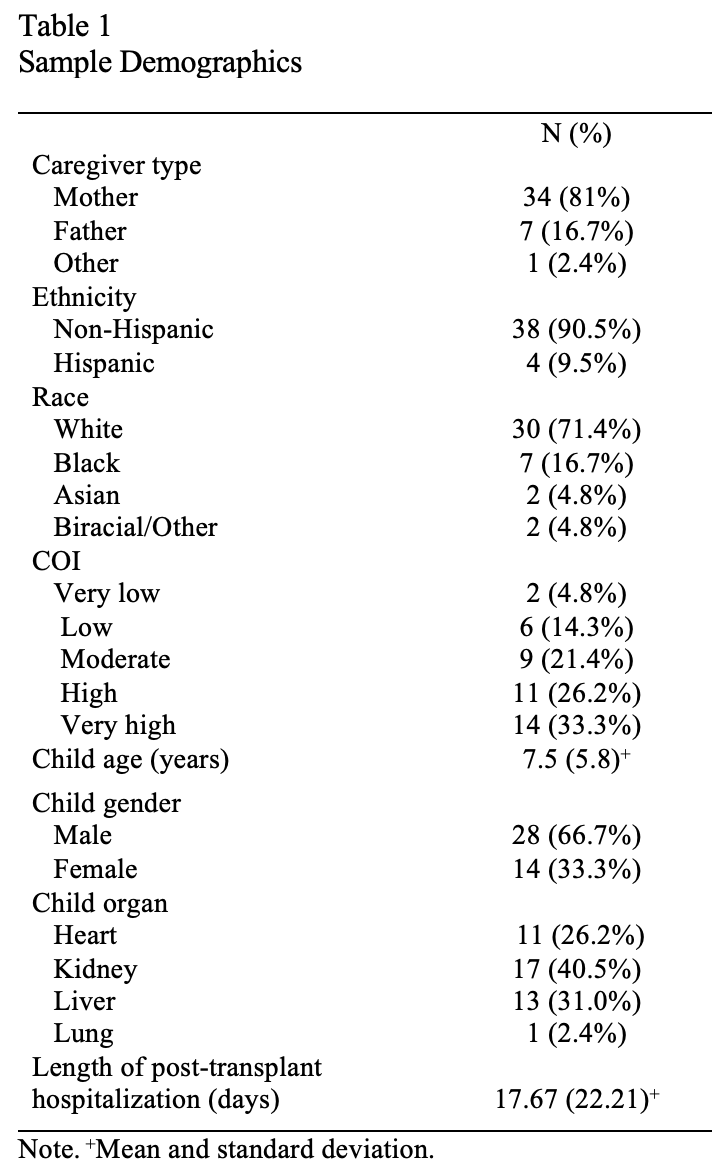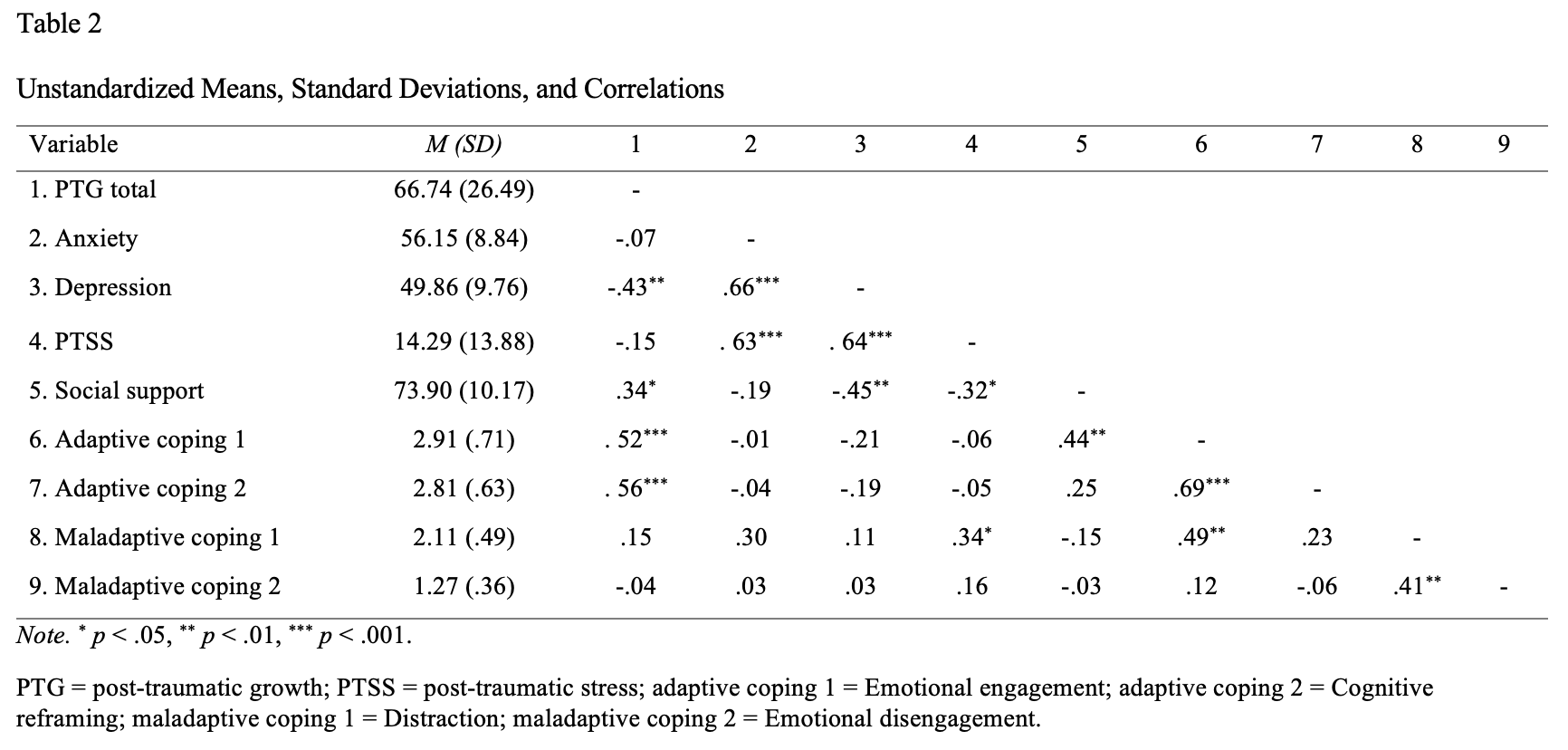Thriving through adversity: Post-traumatic growth among caregivers one month after solid organ transplant
Kara West1,2, Jill Plevinsky1,2, Debra Lefkowitz1,2.
1Child and Adolescent Psychiatry and Behavioral Sciences, Children's Hospital of Philadelphia, Philadelphia, PA, United States; 2Perelman School of Medicine, University of Pennsylvania, Philadelphia, PA, United States
Introduction: Receiving a solid organ transplant (SOT) is a life-changing event for pediatric recipients and their families. Although transplant has been shown to improve patient and family quality of life, decades of research have documented potential negative psychological sequelae (e.g., post-traumatic stress, depression, anxiety) that may occur in relation to stressful and traumatic experiences across the transplant journey. However, there is increasing evidence that caregivers may experience positive change as a result of extremely stressful life events, including their child’s SOT. The goals of this study were 1) to examine the presence of post-traumatic growth (PTG) among caregivers one-month after their child’s SOT and 2) examine relations between PTG and other indicators of adjustment (e.g., mental health symptoms, social and emotional wellbeing), and patient and demographic factors. This study is the first, to our knowledge, to examine post-traumatic growth among caregivers during the immediate post-SOT period.
Methods: Forty-two caregivers of children 0-18 years old (M= 7.5 years, 5.8 SD; 66.7% male) who received a SOT at a large US children’s hospital completed electronic surveys one-month after transplant. Questionnaires assessed mental health symptoms (i.e., anxiety, depression, post-traumatic stress) and coping resources (i.e., PTG, emotion coping, social support). Most caregivers were mothers (81.0%), White (71.4%), non-Hispanic (90.5%), and had children who underwent kidney transplant (40.5%; 31.0% liver, 26.2% heart, 2.4% lung).

Results: Roughly 80% of caregivers (n = 34) had total scores of 46 or higher (M= 66.74, SD= 26.49) indicating a medium-to-high degree of PTG one month post-transplant. Consistent with prior work (Triplett et al., 2021), Appreciation for Life was the most highly endorsed area of growth. Caregivers who reported greater overall PTG also reported fewer depressive symptoms (r =-.43, p = .01), higher levels of social support (r =.34, p = .03), and higher engagement in adaptive emotion coping strategies (r’s = .52-.56, p < .001). PTG was not significantly related to symptoms of anxiety or post-traumatic stress, maladaptive emotion coping strategies, or patient and demographic factors (e.g., organ type, child age, child opportunity index, length of hospitalization post-transplant).

Conclusion: Findings suggest that caregivers experience PTG as soon as one month after their child’s SOT. Making meaning of their child’s transplant may confer some protective benefits against symptoms of depression. However, longitudinal research is needed to better understand how PTG relates to well-being over time. Future directions include examination of changes in PTG over time, as well as how PTG may provide a protective or buffering effect from the onset or progression of mental health symptoms post-transplant.
Funding for this study was provided by the Society for Pediatric Psychology.
[1] Resilience
[2] Patient-reported outcomes
[3] Post-transplant adjustment